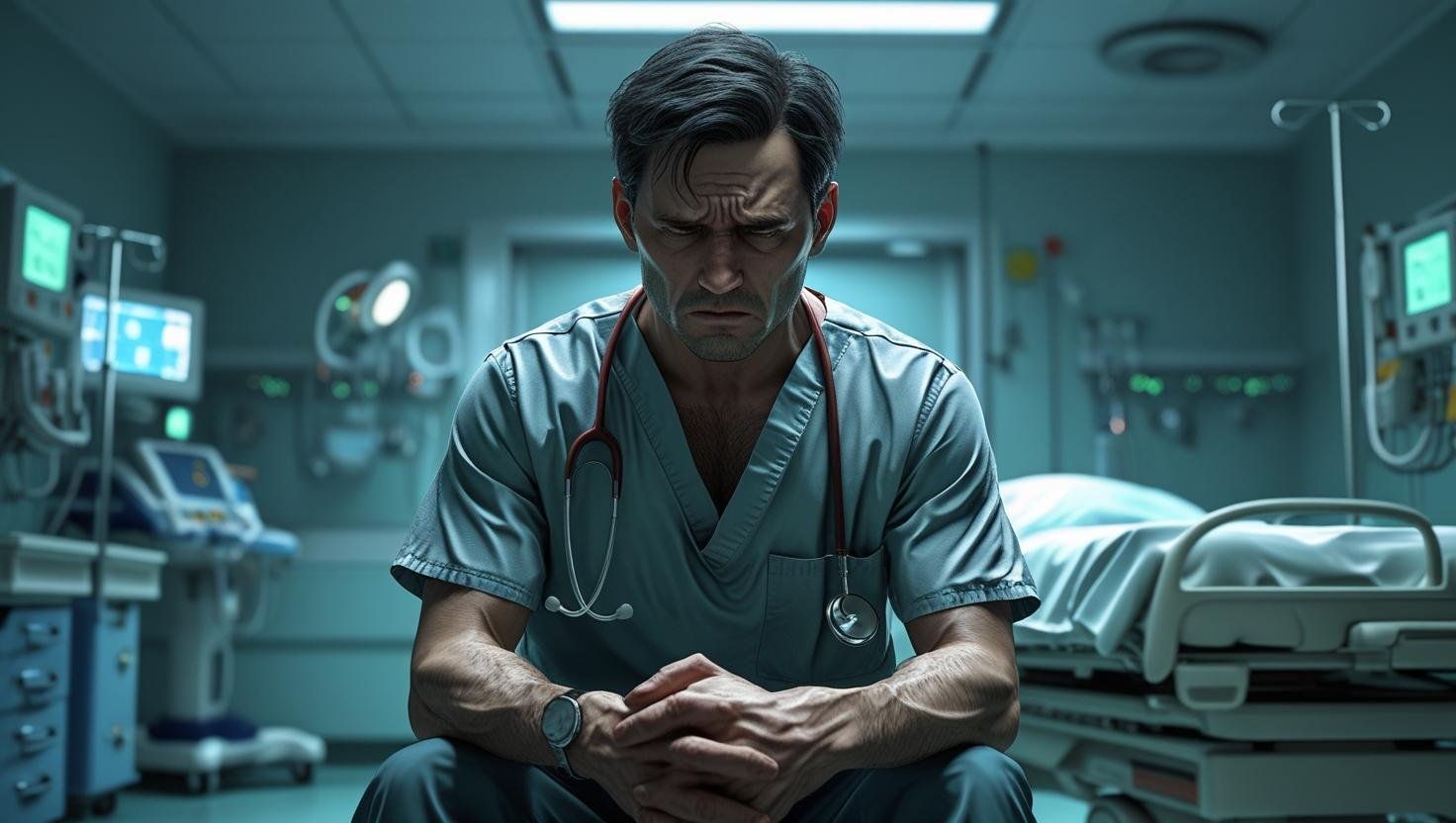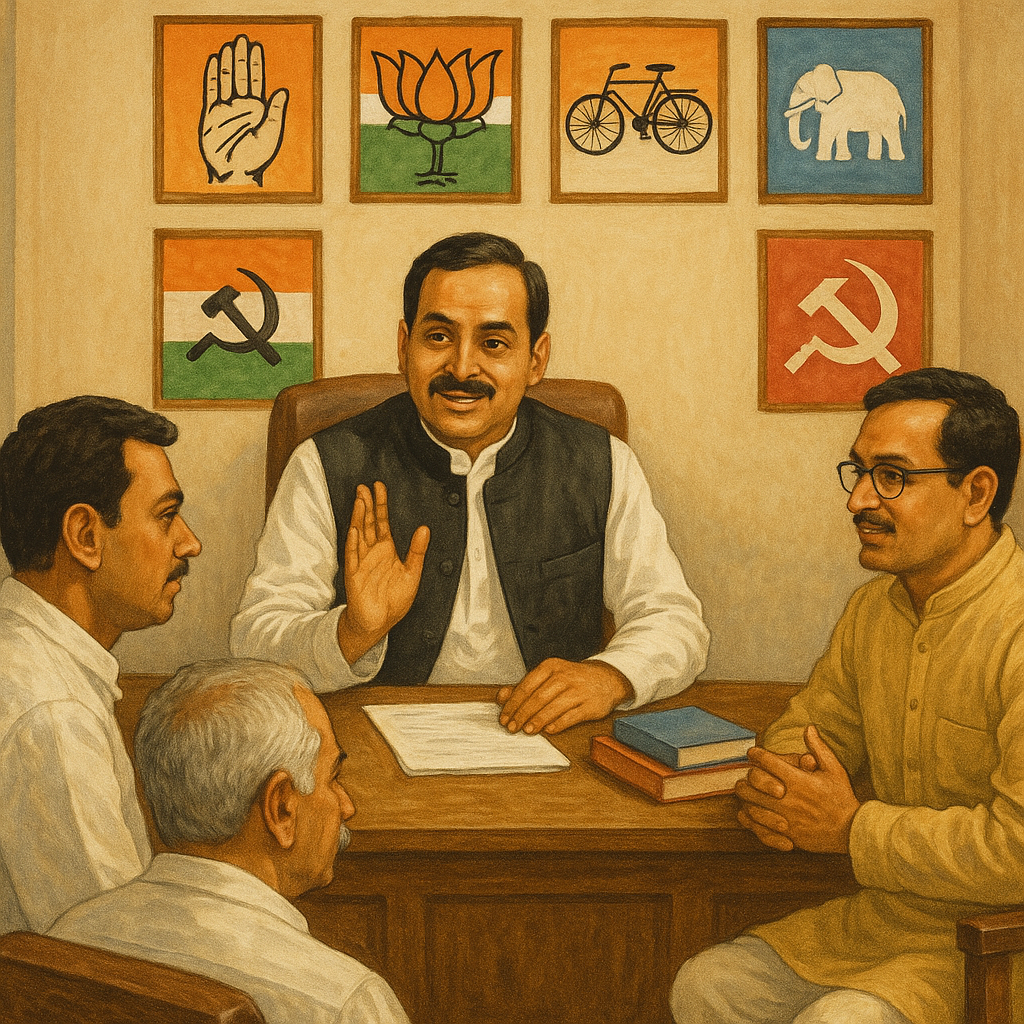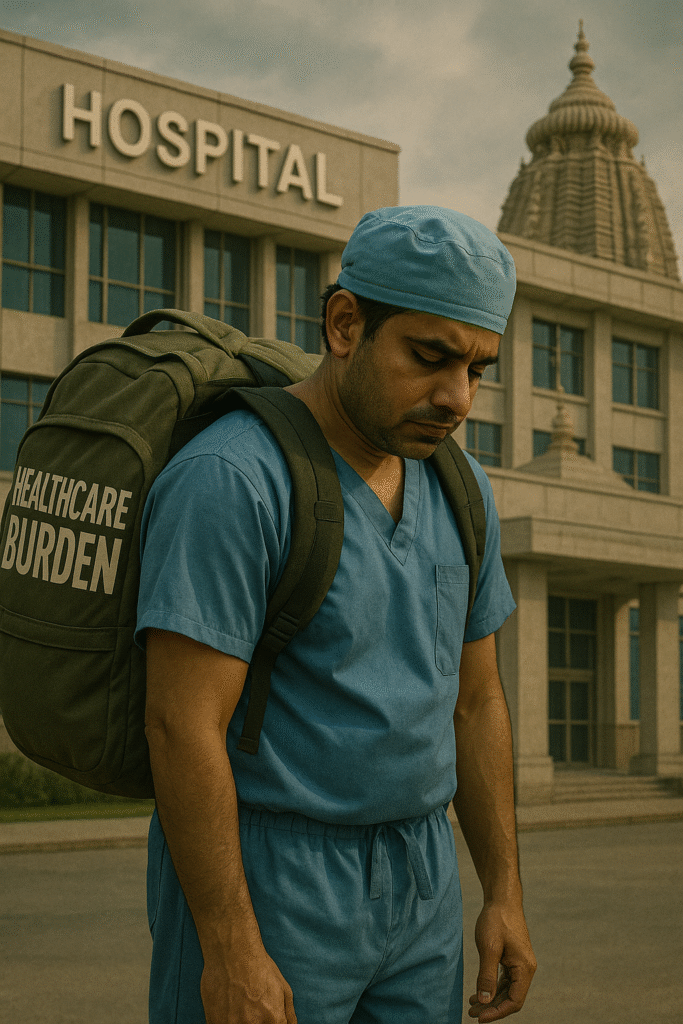In India, doctors often face harsh criticism for the rising costs of healthcare, while hospitals and administrators typically avoid scrutiny. I have waived countless fees for patients who cannot afford treatment, yet it is doctors—not officials—who are labelled as heartless. We are held responsible for a broken system that is far beyond our control.

For instance, when patients struggle to pay hospital charges, I may choose to waive my fees, but I still encounter criticism. The real issue lies in systemic failures: private doctors are expected to provide public-level prices and act as unpaid social workers, while administrators continue to profit. Unlike many other professions, we must constantly justify our fees while trying to balance compassion for those who are suffering.
Turning a blind eye to human suffering is unacceptable. I have seen families struggling to afford even basic care—real people facing genuine hardships. That’s why I waive fees: to heal, not to drive families deeper into debt.
However, it is unjust to expect doctors to shoulder the burden of a broken healthcare system alone. When governance fails, it is doctors, not politicians, who bear the weight. The root of the problem lies with policymakers who underfund public healthcare and then shift the blame onto doctors.
Until these policies change, doctors will continue to fill the gaps left by the system’s shortcomings. Please do not blame us; we are striving to keep healthcare afloat, not causing its collapse.

Private hospitals often adjust their charges for hospital beds, diagnostic tests, and procedures. Additionally, new fees frequently emerge, including administrative charges, nursing fees, drug and material handling costs, oxygen, nebulization, and transportation fees. Meanwhile, doctors’ professional fees have remained essentially unchanged for decades. Often, these fees are reduced or waived entirely if patients are unable to afford payment.
Expecting doctors to be both scapegoats and symbols of empathy is unrealistic. Around the world, doctors are often underpaid, overworked, and undervalued. No country truly recognises the complexity or importance of their work. There is an increasing push to separate doctors from the healthcare system while holding them fully accountable for its failures, even though they did not create it.
When patients cannot afford care, the root cause is often found in the government or an economic system that treats healthcare as a profit-driven commodity. If affordability is an issue, hospitals or local authorities should be held responsible, not individual doctors.
Some healthcare systems justify low pay for doctors by claiming it would “bankrupt the municipal hospital.” This excuse weaponises the very altruism that motivates many healthcare professionals.

The state of the government healthcare system in Odisha, as in any other state, is not solely the responsibility of the ruling government; rather, it is the collective outcome of all political parties that have held power over the years. If the system is deemed adequate, credit should be shared among all. Conversely, if it is failing, the blame lies with everyone involved.
There is no need for ministers or officials to become defensive about this issue. At the same time, opposition leaders lack the moral authority to criticise without acknowledging their contributions to shaping the system.
A notable indicator of the problem is that most ministers and opposition party leaders, along with their families, prefer private hospitals. If the government healthcare system were truly effective, why wouldn’t they use it themselves?
It is time for the public to demand accountability. Politicians and government officials, whose salaries are funded by taxpayers, should be required to use government hospitals. Only then will we see a genuine commitment to improvement.
Politically motivated free health schemes launched by the central and state governments (like Ayushman Bharat and Gopabandhu Yojana) aim to make healthcare affordable for the needy. However, their application in tertiary private hospitals makes them financially unsustainable.

Patients often blame doctors for high healthcare costs, a mix of perception and systemic issues. Here are the main reasons why this happens:
-
Doctors as the Face of Healthcare
Patients primarily interact with doctors, making them the most visible representatives of the entire healthcare system. When medical bills are high, patients often direct their frustration toward doctors—the immediate point of contact—even though the overall costs also include hospital expenses, medications, diagnostics, and administrative charges. -
Perception of Overprescription and Overinvestigation
Many patients believe that doctors sometimes order unnecessary tests or prescribe expensive medications, which can inflate the total bill. This perception may arise from past experiences with defensive medicine or instances where profit motives influenced treatment decisions. -
Lack of Transparency
A common issue is the insufficient explanation given to patients regarding the necessity and cost of tests or treatments. This lack of clarity often leads patients to place blame on doctors rather than understanding the complex factors behind healthcare pricing. -
High Consultation Fees
In private healthcare settings, doctors’ consultation fees are often a visible, upfront expense. Patients may view these fees as the primary contributor to rising costs, overlooking other hidden expenses in the care process. -
Complexity of the Healthcare System
Healthcare costs result from the interplay between hospitals, pharmaceutical companies, insurance providers, and government regulations. Patients frequently lack insight into this complexity, making it easier to simplify the problem and blame doctors alone. -
Emotional Stress and Frustration
Facing illness alongside financial strain creates emotional stress. It is a natural psychological reaction for patients to seek someone to hold responsible, and doctors—being the immediate caregivers—often become the target of this frustration. -
Cultural Expectations
In many cultures, doctors are seen as healers who should provide care without concern for cost. When bills become burdensome, the clash between these expectations and reality can lead to blaming doctors for the expense. -
Influence of Media and Anecdotal Stories
Media reports and personal stories about medical negligence, overcharging, or unnecessary procedures can shape public opinion, fostering distrust in doctors and their handling of healthcare costs.

The expectation may not be accurate, but disregarding human suffering is also problematic.
There have been instances where families struggled to pay for medical treatment, with parents seeking various means to afford care. These situations involve real individuals facing difficult decisions. In certain circumstances, I have chosen to waive fees, motivated by my commitment to the medical profession and the well-being of patients.
However, there is a challenge when individual doctors are expected to address broader systemic issues within the healthcare system.
When governance fails to meet the public’s needs, healthcare professionals often step in to fill the gap. This responsibility tends to fall on doctors rather than policymakers. Issues related to public healthcare policy and funding can lead to criticism of doctors, though the underlying problems may stem from systemic failures.
As long as healthcare policies remain unaddressed, doctors may continue to bear additional burdens resulting from these shortcomings.It is essential to consider the roles and responsibilities of both healthcare providers and policymakers in addressing challenges within the healthcare system.
Doctors aim to provide care, and the existing structure of the healthcare system influences their actions.They do not become physicians to perform miracles—they are trained scientists. Our role is to help people manage health challenges using objectivity, evidence, and scientific knowledge. We are professionals, not healers or messiahs. The expectation that doctors must embody both cold science and boundless empathy is unrealistic and unfair.
We didn’t create this dynamic – we’re just living in it.










